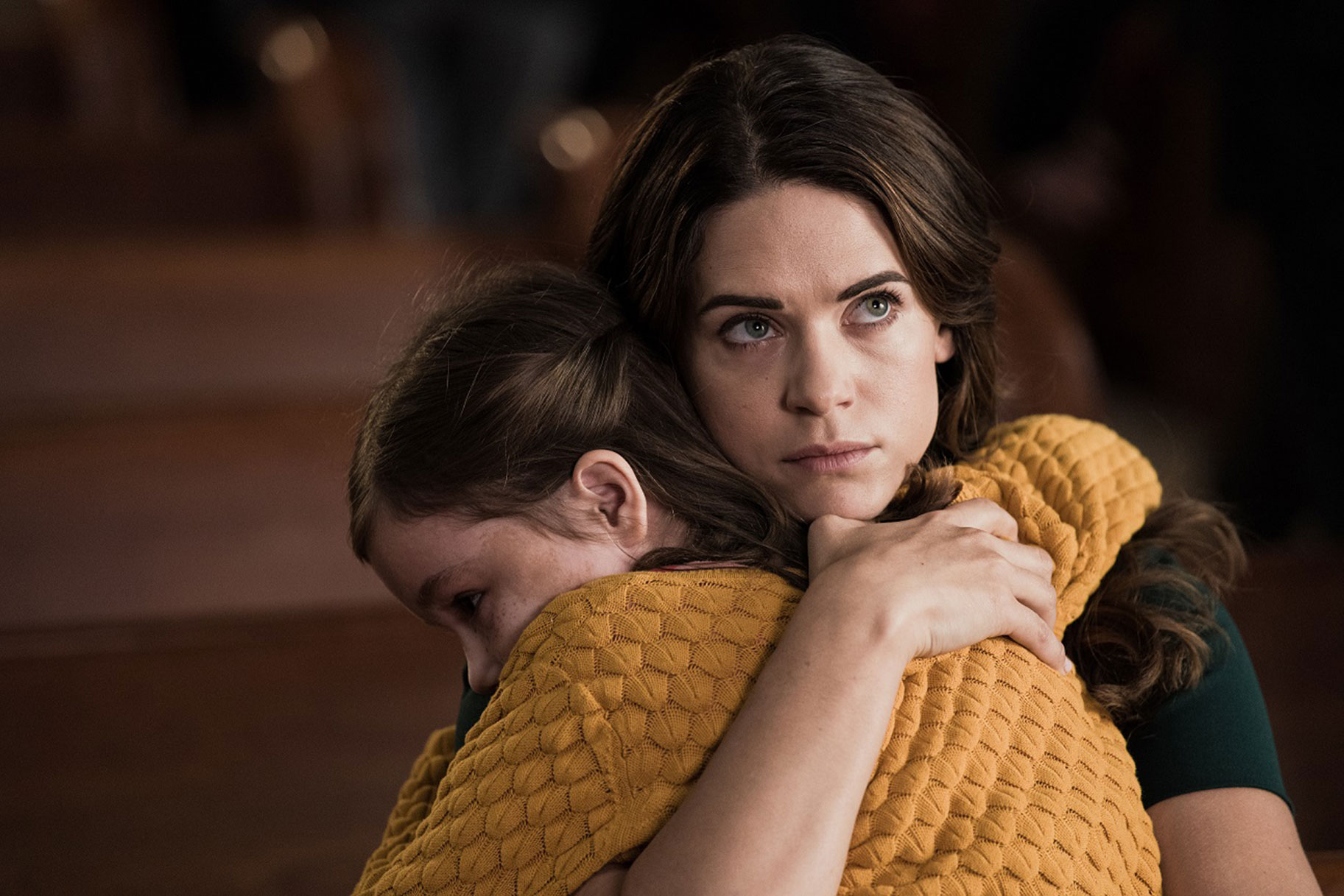Create a free profile to get unlimited access to exclusive videos, breaking news, sweepstakes, and more!
The Scariest Part Of New Movie 'You Can’t Take My Daughter'? It's Based On A True Story
In Lifetime's "You Can't Take My Daugther," a mother fights back against the system after her rapist tries to get custody of her daughter.

In Lifetime’s “You Can’t Take My Daughter,” a mother fights back to improve the judicial system after her rapist tries to gain custody of her daughter. It's a terrifying logline, but the scariest twist comes at the end when viewers are informed the film is based on a true story.
After surviving a sexual assault which resulted in her pregnancy, Amy Thompson (played by Lyndsy Fonseca) decided to keep her child as a testamant to her strength. Her rapist, who initially denied any sexual contact with her, then tried to sue her for custody of her daughter. At that point, she learned that there were no laws in place in her state to terminate parental rights of a rapist unless he is convicted in criminal court. (Only five people out of 1000 accused of sexual violence are actually convicted, according to RAINN.)
Thompson told the judge in her case that she was going to fix that law, and that’s just what she did. Despite looming threats of violence from her attacker, she bravely sought justice and won her case.
The movie, one of the newest from Lifetime’s “ripped from the headlines” series, reveals at its conclusion that Thompson’s tale is based on the true story of Analyn Megison.
Megison, a former law graduate who now works in the financial field, told Oxygen.com that her rapist attempted to sue her for custody of her then-6-year-old daughter in 2010. That's when she made a horrifying discovery.
“Florida had nothing in place,” she said, referring to laws that could terminate a father's parental rights if the child is conceived through rape.
This prompted her to go “straight into fight mode,” she reflected.
As she was fighting her own custody battle in court, a fight she ultimately won two years later, she decided to take on a larger battle to benefit the greater good. Like the character in the movie, she told the judge in her case that she was working to change the law.
“I realized that if I’m going through this with all that I have — I’ve graduated law school, I’ve accomplished all these differing things — what is somebody going to do if they haven’t had the same advantages that I have?” she told Oxygen.com. “I wanted to help other women. [...] I figured, I can’t know what I know and let somebody else go through this.”
Megison drafted up a model law for Florida so that the parental rights of rapists could be based on "clear and convincing evidence” in civil court and not a conviction from criminal court. “Clear and convincing evidence” means it must be proved “that a particular fact is substantially more likely than not to be true,” according to Justia. It is the highest burden of proof in civil court.
The law passed unanimously in 2013 with bipartisan support.
“I felt very satisfied, like there was hope,” Megison reflected.
Her law inspired the national Rape Survivor Child Custody Act, which passed in 2015. The law provides financial incentives to states who pass laws which terminate parental rights of a rapist with clear and convincing evidence.
Currently, 18 states abide by this act. Many states, however, still require a criminal conviction. Lifetime has posted several maps to demonstrate how laws differ state to state.
“You Can’t Take My Daughter” airs on Lifetime on Feb. 15 at 8/7c.
The Rape, Abuse & Incest National Network (RAINN) urges anyone needing support to call the National Sexual Assault Hotline at 800.656.HOPE (4673). The line is accessible 24/7.


























